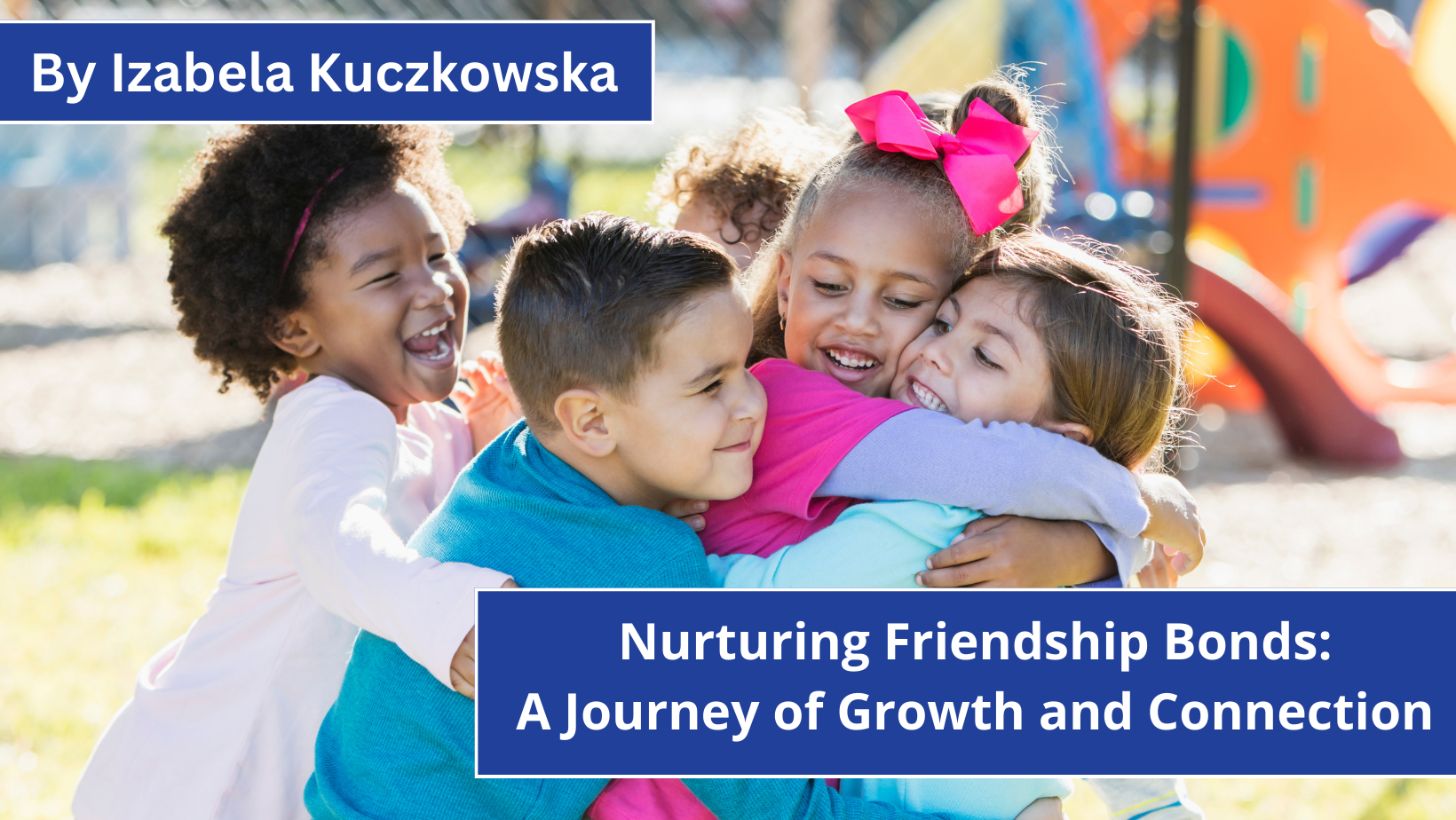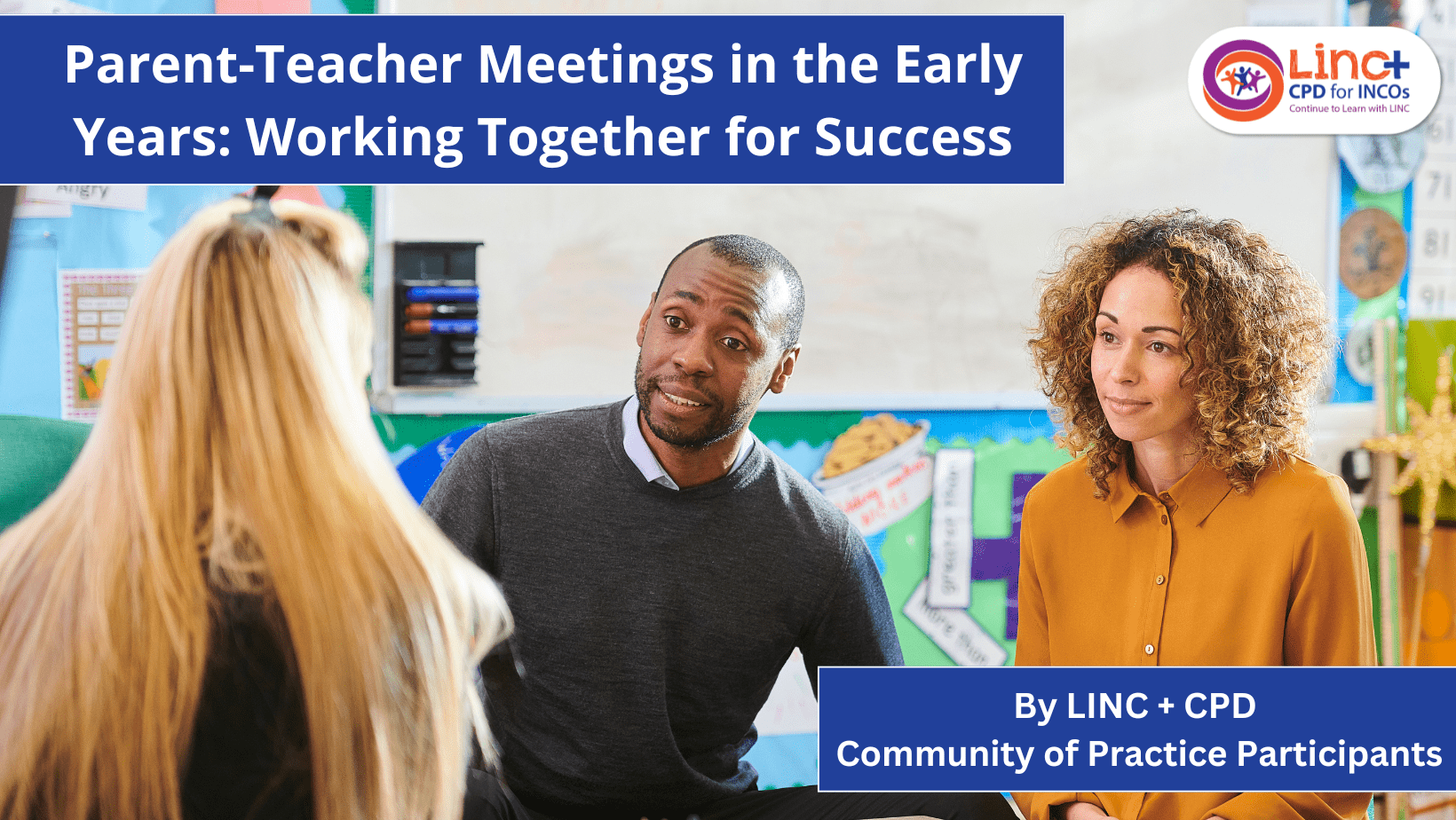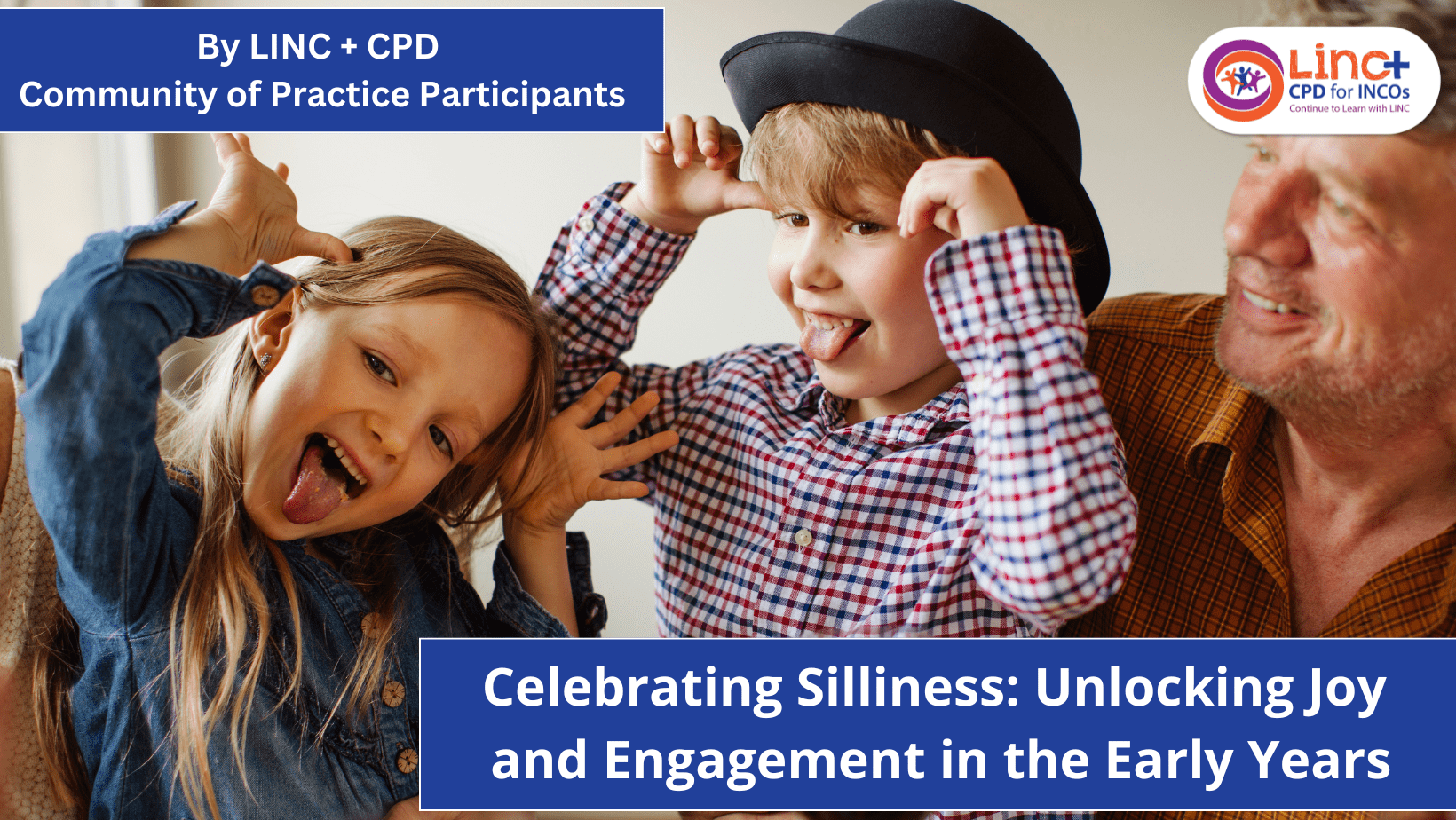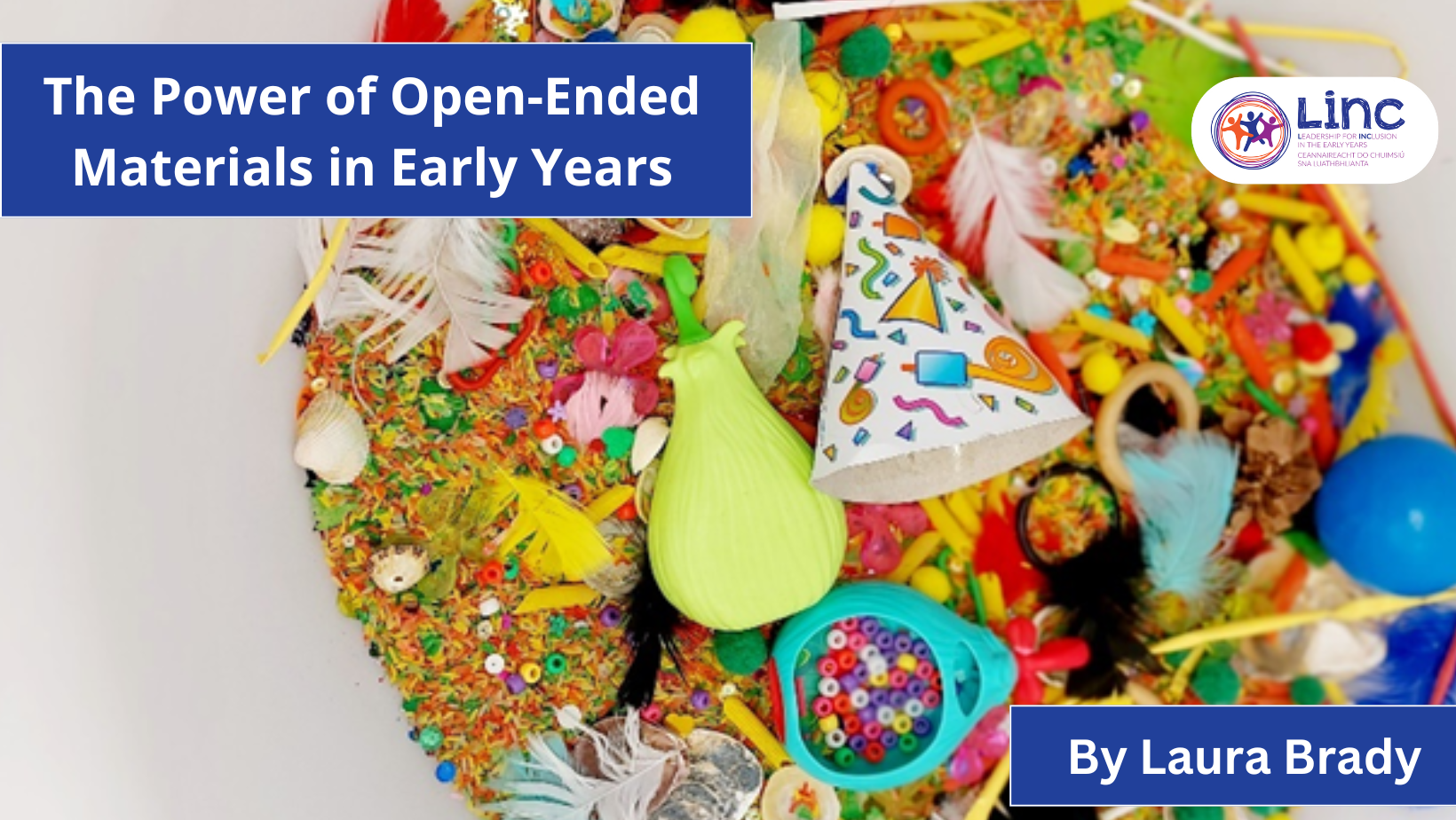Nurturing Friendships Bonds: A Journey of Growth and Connection
In this edition of the LINC Blog, LINC Graduate Izabela Kuczkowska takes a nostalgic journey back to her kindergarten days, savoring the enduring memories of cherished friendships. As an Early Years educator for the past six years, she shares strategies to nurture vital connections among children, from encouraging dynamic group activities to cultivating a sense of belonging.

More than three decades have passed since my kindergarten adventure, yet the memories of friends and the joyous moments spent together remain. Fast-forward to the last six years as an Early Years Educator, where I have been privileged to witness the enchanting magic of friendships in action once again. Early childhood chapter is an extraordinary time for fostering those important bonds, shaping not only the present but also laying a sturdy foundation for future relationships. So, how do we breathe life into this magic? How can we, as educators, actively contribute to the development of these crucial connections? Allow me to share some strategies that have proven profoundly effective in my daily practice:
Encouraging Dynamic Group Activities:
Fostering friendships thrives in the soil of collaboration and teamwork. Whether through intricately designed group projects, interactive games that spark laughter, or engaging storytelling sessions, these activities create invaluable moments for children to connect, communicate, and organically develop friendships. Our expanded library, which includes many books on friendship and emotional well-being, coupled with a vibrant Friendship Day celebration, adds a layer of intentional connection in our setting.


Cultivating a Sense of Belonging:
Creating a warm and inclusive atmosphere is paramount. At the start of each school year, I delve into researching the cultural backgrounds of each child. This allows me to create an environment where every child feels not just seen, but valued, accepted and heard. A door decorated with speech bubbles in their respective languages and a mini-gallery showcasing the first week’s memories contribute to a sense of belonging for both children and their families.
![blog 1]](https://lincprogramme.ie/wp-content/uploads/2023/12/blog-1.jpg)
Modelling Positive Behaviour:
As educators, we play a pivotal role in shaping young minds. By displaying kindness, empathy, and effective communication, we become important role models for children. Children observe and mimic our actions, learning the foundational elements of healthy friendships. The impact of our actions is a powerful tool in shaping their socio-emotional development.
Modelling the importance of attentive listening, encouraging children to ask questions, show genuine interest, and respond thoughtfully fosters empathy and understanding among peers.
Conflict Resolution Skills:
Recognising that conflicts are a natural part of relationships, imparting skills for peaceful and respectful resolution is crucial. Encouraging children to express their feelings and perspectives, while actively seeking solutions that benefit everyone involved, establishes a foundation for friendships based on cooperation and compromise.
Encouraging Positive Peer Interactions:
Creating ample opportunities for group play and discussions enables children to learn essential skills such as sharing, taking turns, and helping each other. This fosters a positive peer culture that enriches their social development.
Parental Involvement:
Recognising the collaborative nature of this journey, involving parents becomes paramount. Regular communication with parents regarding their child’s engagement and participation in the setting fosters a collaborative approach. Sharing ideas for at-home activities that encourage friendship-building strengthens the partnership. Providing a supportive space for parents to share concerns and seek advice ensures a united approach in supporting their child.
In conclusion, every child’s friendship journey is unique, and some take a bit longer to form those close connections. Patience, consistent support, and enthusiastic encouragement are the pillars that sustain and guide children toward creating meaningful friendships during their time in our settings.
“Alone, we can do so little; together, we can do so much.” – Helen Keller



Izabela Kuczkowska
Early Years Educator
Izabela works as an Early Years Educator based in Galway. She completed her Bachelor’s degree in Family Science studies in Poland in 2012 and since then she has become passionate about holistically supporting children in their early year adventures.
In 2023, Izabela completed the LINC Programme, further enhancing her skills and awareness in the field. She is constantly seeking opportunities to deepen her knowledge and stays up to date with the latest research and practices.
Izabela’s primary goal is to create a warm and welcoming environment that feels like a second home to the children. She strongly believes in fostering an inclusive and safe space that empowers children to develop a strong sense of self-confidence and sense of belonging.
You may also like:

Parent-Teacher Meetings in the Early Years: Working Together for Success
Parent-Teacher Meetings in the Early Years: Working Together for Success In this edition of the LINC Blog, the LINC+ CPD Community of Practice Participants explore the importance of parent-teacher meetings in the early years and how they serve as a bridge between home...

Celebrating Silliness: Unlocking Joy and Engagement in the Early Years
Celebrating Silliness: Unlocking Joy and Engagement in the Early Years In this edition of the LINC Blog, the LINC+ CPD Community of Practice Participants reflect on the power of playfulness and joy in early childhood education. From singing conversations to shaking...

The Power of Open-Ended Materials in Early Years: Building Community Connections Through Sustainability
The Power of Open-Ended Materials in Early Years: Building Community Connections Through Sustainability In this edition of the LINC Blog, LINC Graduate Laura Brady explores the magic of open-ended materials in early years education and how they connect us with...
